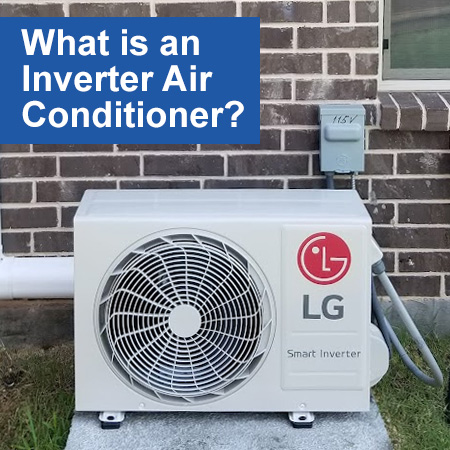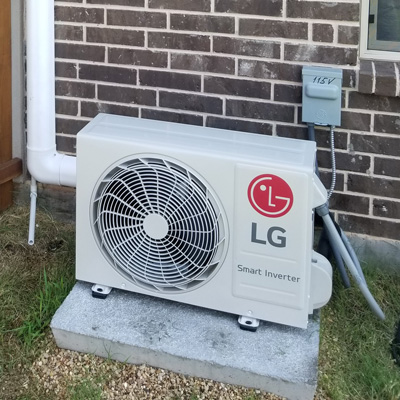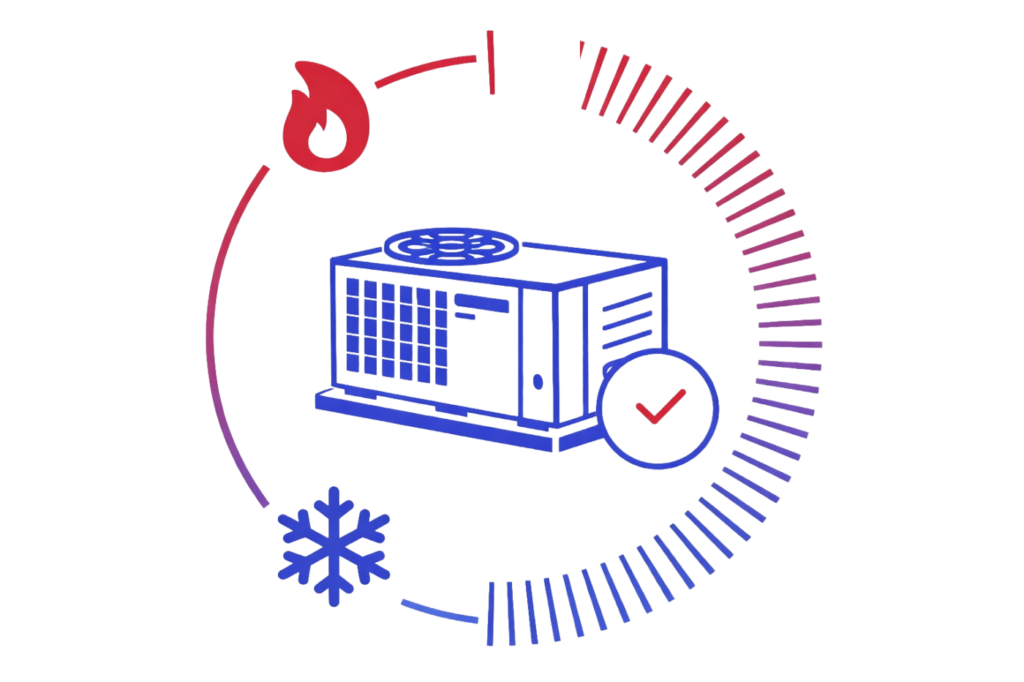Inverter Technology
Inverter air conditioners use inverter technology to provide better energy efficiency and consistent cooling and heating. Inverters control compressor speed with advanced electronics for better efficiency and performance.

The main difference between an inverter and a non-inverter air conditioner is the compressor. Inverter air conditioners use a variable speed compressor, while non-inverter air conditioner uses a fixed speed compressor, which is less efficient. A non-inverter AC turns the compressor on and off, which leads to higher energy consumption and more noise.
Inverter technology allows adjustable compressor motor speed, reduces energy consumption and noise. Inverter air conditioners are a type of air conditioner that operates with variable speed to adjust the compressor, providing more efficient cooling and heating. Inverters are more efficient, quieter and better at maintaining temperature.
Inverter air conditioners are eco-friendly because of reduced energy consumption and a lower carbon footprint.
How Inverter Air Conditioners Work
Inverter air conditioners work by adjusting the compressor motor speed to maintain the desired temperature, saves energy compared to non-inverter air conditioners. Non inverter units run at full blast until the set temperature is reached, then turn off, which is less efficient.
Inverter air conditioner adjusts the compressor speed to regulate and maintain the set temperature. Non-inverter units only operate at a fixed speed.
Inverter air conditioners use a variable speed compressor to provide precise temperature control and reduce energy waste. They continuously circulate cold air to keep the room comfortable.
Compressor motor speed is adjusted to maintain constant temperature, reduces the need for frequent start-stop cycles. Non-inverter units operate with frequent on-off cycles, which can lead to temperature fluctuations and less consistent cooling.
Inverter air conditioners operate quietly and produce less noise because of a variable speed compressor.
Inverter ACs have a longer lifespan than non-inverter ACs.
Benefits of Energy Efficiency
- Inverter air conditioners have several benefits, including energy efficiency, reduced energy consumption, and lower utility bills. By adjusting the compressor speed, inverter air conditioners save energy compared to traditional models.
- Inverter air conditioners can save up to 30% of electricity compared to non-inverter air conditioners. Energy-efficient design reduces energy waste and carbon footprint.
- Inverter air conditioners provide consistent cooling and heating, maintain a stable temperature, and minimize the need for frequent adjustments. Keeps rooms cool and comfortable.
- Inverter air conditioners operate at lower speeds, reducing energy consumption and noise.
Features and Types of Inverter Air Conditioners

- Inverter air conditioners come in different types: window AC units, split systems, and portable air conditioners.
- Inverter air conditioners have advanced technology – variable speed compressors and inverter compressors.
- Many inverter air conditioners use environmentally friendly refrigerant R32 to enhance cooling capacity, efficiency and reduce harmful emissions.
- Some inverter air conditioners have additional features, such as air filters, temperature control, and remote control operation.
- Inverter air conditioners come in different sizes and capacities, suitable for different rooms and applications.
- Inverter air conditioners provide efficient cooling and heating, ideal for residential and commercial use.
How to Choose the Best Air Conditioner
- When choosing an air conditioner, consider energy efficiency, noise level, and cooling capacity.
- Inverter air conditioners are one of the best options because of their energy-efficient design and consistent cooling and heating.
- Compare different types of air conditioners, including inverter and non-inverter models, to determine the best one for your needs.
- Consider the room size, insulation and outdoor temperature when selecting an air conditioner.
- Consult with HVAC experts to determine the best air conditioner for your specific needs and application.
Eco Friendly Options
- Inverter air conditioners are eco-friendly because of reduced energy consumption and a lower carbon footprint.
- Inverter air conditioners uses eco friendly refrigerant and designed to minimize waste and reduce environmental impact.
- Inverter air conditioners are a sustainable choice for residential and commercial use, providing efficient cooling and heating while reducing energy consumption.
- Inverter air conditioners operate at a lower speed, reducing energy consumption and noise.
- Inverter air conditioners are a reliable and efficient choice for those looking for an eco-friendly air conditioning solution.
Conclusion on Inverter Air Conditioners
Inverter air conditioner is the top choice for homeowner who wants energy efficiency, quiet operation and reliable temperature control.
With inverter technology, the compressor motor speed is adjusted to match the cooling or heating demand. Inverter air conditioners can maintain your desired temperature without the constant on-off cycling of non-inverter air conditioners, resulting in less energy consumption and a more comfortable indoor environment.
Unlike a standard air conditioner with a fixed speed compressor that runs at full speed or shuts off completely, an inverter unit operates at a lower speed when less cooling or heating is needed. This saves energy and reduces noise. Inverter air conditioners are quieter than non-inverter air conditioners. The ability of an inverter air conditioner to adjust its compressor speed ensures that your room is at a constant temperature, eliminates temperature fluctuations and energy waste.
Another advantage of an inverter air conditioner is its eco-friendly design. It uses less electricity and operates more efficiently, an inverter AC reduces your carbon footprint and utility bill. Many inverter models also come with advanced air filters and smart temperature control to improve indoor air quality and comfort. Whether you choose a window air conditioner, a split system, or a ducted inverter unit, you will get efficient cooling and heating tailored to your needs.
Inverter air conditioners may have a higher upfront cost than non-inverter models. Still, the long-term savings on power consumption and maintenance are worth it. Non-inverter air conditioners or normal AC units use more energy, create more noise and have a shorter lifespan due to the stress of frequent compressor kicks at full throttle. Inverter air conditioners operate smoothly and efficiently, providing cool air or heat as needed without unnecessary power usage.
In summary, if you’re looking for the best air conditioner for your home or office, an inverter air conditioner is the best combination of energy efficiency, quiet performance, and features.
As more homeowners and businesses prioritize energy-efficient solutions, inverter air conditioners are becoming the standard for modern climate control. By choosing an inverter AC, you will get a comfortable, eco-friendly space, save a decent amount on your utility bill, and reduce your environmental impact.

